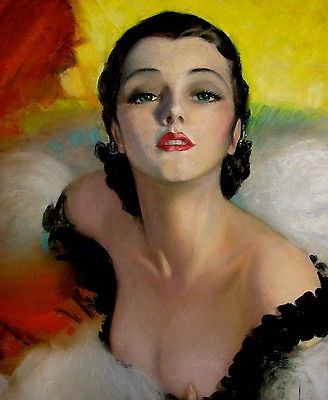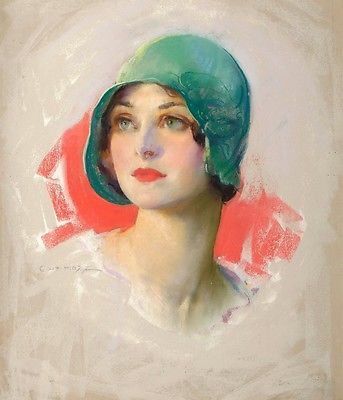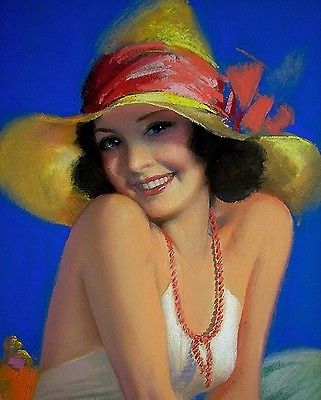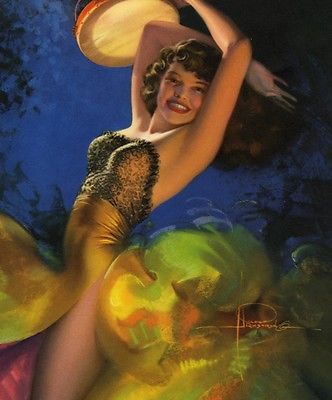Rolf Armstrong was born in
Bay City, Michigan on April 21, 1889 to Richard and Harriet (Scott)
Armstrong. His father owned the Boy-Line Fire Boat Company, which
included a line of passenger ships. Some were deployed in Chicago for
use at the Chicago World’s Fair there in 1893. However, the father’s
business and family were struggling, and the family homestead was lost
to foreclosure. In 1899, the family moved to Detroit, Michigan.
During the 1920s and 1930s, his work appeared on many pieces of sheet music, as well as on the covers of many magazines. Many stars posed for his portraits, including Mary Pickford, Greta Garbo, and even Boris Karloff.
Armstrong’s work for the Pictorial Review was largely responsible for that magazine achieving a circulation of more than two million by 1926. A year later, he was the best selling calendar artist at Brown & Bigelow. In 1930, RCA hired him to paint pin-ups to advertise their products, and in 1933 the Thomas D. Murphy Calendar Company signed him to produce a series of paintings for their line.
Rolf Armstrong died in 1960 on the island of Oahu, Hawaii as one of the best “pin-up” artists of the first half of the twentieth century.




(more…)
During the 1920s and 1930s, his work appeared on many pieces of sheet music, as well as on the covers of many magazines. Many stars posed for his portraits, including Mary Pickford, Greta Garbo, and even Boris Karloff.
Armstrong’s work for the Pictorial Review was largely responsible for that magazine achieving a circulation of more than two million by 1926. A year later, he was the best selling calendar artist at Brown & Bigelow. In 1930, RCA hired him to paint pin-ups to advertise their products, and in 1933 the Thomas D. Murphy Calendar Company signed him to produce a series of paintings for their line.
Rolf Armstrong died in 1960 on the island of Oahu, Hawaii as one of the best “pin-up” artists of the first half of the twentieth century.

ROLF ARMSTRONG PIN UP PRINTS 1900′S GREAT PRINTS!!2

ROLF ARMSTRONG PIN UP PRINT 1900′S on lithograph paper

ROLF ARMSTRONG PIN UP PRINT 1900′S COLLECTION OF 10x

ROLF ARMSTRONG PIN UP PRINT 1900′S COLLECTION OF 10b
